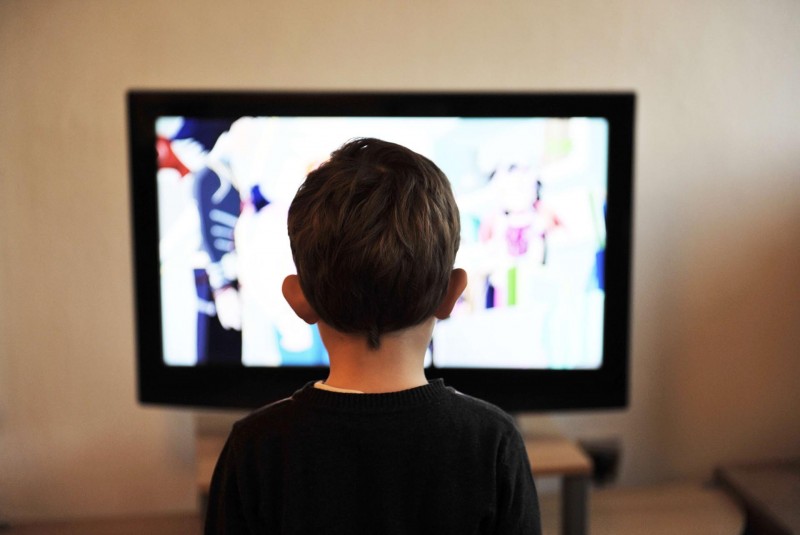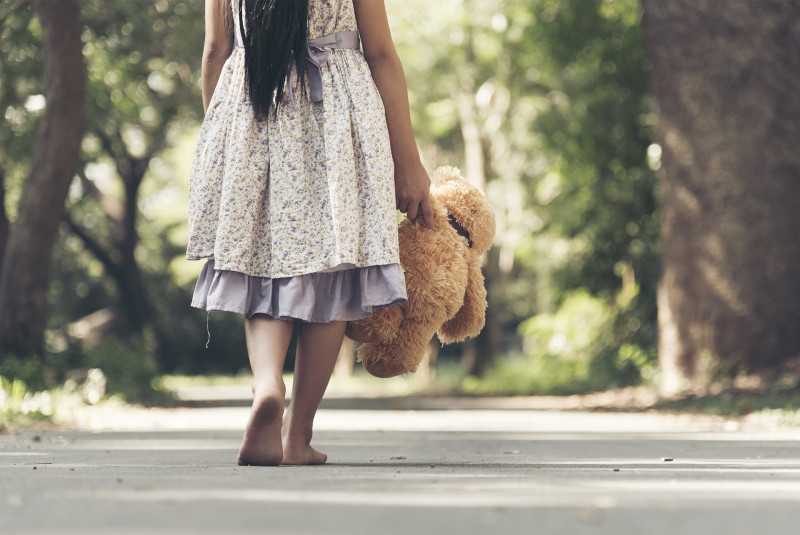Early Erotization: How To Protect Children?
Despite discussions on the subject, unfortunately early erotization is very common in society. Currently, with technology and the speed of mass communication, children are being exposed to a variety of content earlier and earlier, including inappropriate material for their age (since it is intended for adults).

It appears in songs with disrespectful lyrics, in movies, TV shows, soaps, ads, commercials, etc. Generally, it contains encouragement to things that are not appropriate for their age, because since they are still developing emotionally and physically, they are as yet unable to distinguish between right and wrong, or the benefits or harm to their behavior and development that might result from this excessive exposure.
This sad reality is also often reproduced within the family itself that does not realize the impact it can have on the child’s mind (and, later, on their behavior).
So it is a matter of extreme importance, since the erotization of children leads to consequences that go beyond moral and social issues and enter the field of the Eternal Spirit.
In the article “Proteção aos pequeninos” [Protection of the Little Ones], the President-Preacher of the Religion of God, of the Christ, and of the Holy Spirit1, José de Paiva Netto, reminds us of our responsibility towards children:
“Human beings, especially children, are sources of ceaseless achievements. They are civilization’s true fortune. They cannot continue to be cruelly exploited, subjected to servitude and contempt. Conditions must be created, however minimal, for them to be able to live with dignity, for however long they might have lived.”
In this post, we will talk about the important attention we must give to this subject. This article is based on an interview with the Minister-Preacher of the Religion of the Third Millennium, Paula Suelí.
The material and spiritual consequences of the erotization of children
Sexuality is part of human nature, but early erotization is harmful to child development. It causes a lot of psychological and emotional damage, and even exposes children and adolescents to sexual abuse, because the more familiar they are with sexual gestures, behavior, and content, the more likely they are to get interested in such matters.

They may start thinking that in order to be accepted and loved, they will have to behave sensuously, as if it were a bargaining chip, but this is not true! This exposes them to contexts of abuse, because pedophiles and other abusers use a childish, sensualized approach.
So if they are familiar with this, they will find it normal, and it will be difficult for them to defend themselves.
That is why it is necessary to realize that this damage will have repercussions throughout their life. When they are teenagers, and even adults, they will often believe that they will have to use sexuality as a tool to be accepted and/or liked.
In the Divine Religion, we believe that “we are now body, but we are originally Spirit.” Therefore, this damage extends to children’s Spiritual Agenda, since everything blooms in its own time.
Spiritual agenda — The Religion of Universal Love teaches that no one is born on Earth without a purpose to their existence. The Heavenly Educator Himself, Jesus, gave us His example: “For I have come down from Heaven not to do my will but to do the will of Him who sent me” (The Gospel according to John 6:38). Therefore, each one of us, before we are reincarnated on Earth, assumes in the spiritual world—our homeland of origin—a set of commitments, situations, and challenges that make up our Spiritual Agenda.
+ What Is Reincarnation and Why Is It Necessary?
With each reincarnation, the Eternal Spirit of creatures goes through childhood, pre-adolescence, and adolescence, on purpose. This is intentional and part of the divine plan because it comprises the emotional, affective, and, above all, the spiritual process of maturing.
Children need to learn to play, to make friends, and to respect their own time and body.
When these steps are skipped over and that person reaches adulthood, they may suffer a lot. What’s more, it may have compromised their spiritual commitments on Earth because they were not ready, or because of the traumas that were generated by the harm they suffered.
Read other articles about looking after our children:
+ How to Protect Children and Young People from the Dangers of the World?
+ How to educate children to end violence?
+ Teenage pregnancy — How to help your children act responsibly?
Be doubly cautious with the Internet, music, and videos!
A great deal of attention is necessary when it comes to monitoring the amount of content children consume on the Internet, whether in terms of music, videos, or any other format. It is our responsibility as adults to be aware of what they are watching and listening to.
In fact, it’s wrong to think there is nothing wrong with liking or sharing sexual content on the Internet, or any other content that exposes children to the field of sexuality.
Jesus is very severe as far as caring for children is concerned; and with a very good reason! He does this because He loves us! The Christ of God states in His Apocalypse according to John 3:19: “Those whom I love I rebuke and discipline.”
This means that Jesus acts with Justice, and He draws our attention to this passage from His Holy Gospel according to Mark 9:42: “If anyone causes one of these little ones—those who believe in me—to stumble, it would be better for them if a large millstone were hung around their neck and they were thrown into the sea.”
Pay close attention to this detail: to stumble! So what to say about the impact of exposing children at an early age to erotization, which causes them a much greater harm?
That is why we say again: neglecting this is so serious because it compromises the Spiritual Agenda of these children, teenagers, and young people. There is nothing on Earth that has a greater punishment than this. We need to consider that Jesus is not suggesting we die, ever! But He is showing us how serious the commitment to childhood and youth is.
“Oh, but they’re not my children!” someone might say. But they are somebody’s children and, first and foremost, they’re children of God, so they deserve our respect! That’s why we must adopt a mature stance on social media and with regard to what we watch and bring into our home.
It’s also important to denounce this type of attitude in order to help protect children. This is our social responsibility, but before everything it’s our spiritual responsibility.
If we see someone doing this with a child, we need to warn them (with all due respect), and not ignore the possibility of a problem occurring.
+ Understand how families are formed spiritually on Earth
How to prevent early erotization?
We need to intervene! We learn from Jesus, however, that this is not done in an imposing way, but by helping the child and teenager think about what they are consuming, listening to, watching, and accessing. In short, make them reflect through dialogue, talking and questioning whether that message really represents what they live like, what they are.
Ask questions such as, “Do you really think that we get more attractive just because we have that particular car or wear that perfume?” “Is that how things really work?”

We need to take these measures towards everything, otherwise it will seem as if we are persecuting a particular singer, TV show, etc. . . This is how we are going to be able to extend this reflection to other things the child likes to consume, even because of the social context of the school, with their friends, for example.
Little ones are able to understand this, but it needs to be dealt with clearly. The words we use should never be judgmental, for example, by saying: "Wow, how come you didn’t know that?!” or “How do you let yourself get influenced by that?!”
If we do that, we might even make children behave in a defensive way. So instead of accepting our guidance, they may start getting even more interested on that particular content, even though it does not represent their true feelings.
It’s also important to pay attention at home when, for example, apparently harmless questions are made: “Do you have a boyfriend, or a girlfriend already?” “Have you ever kissed anyone?” These are also types of encouragement.
Worse still are joking remarks like, “When you grow up I want to marry you,” which is not a compliment to a child. On the contrary, this type of approach is as if we were imposing the maturity of an adult on them, because children have no emotional response to these questions.
Children don’t date, they have friends
We need to help our children—and our nephews and grandchildren, too—to take a stand on this, especially for them to learn how to defend themselves when approached by any person. The first step is to fight early erotization within our homes; not to think it’s “cute,” or even to encourage this kind of behavior, even if it’s unintentional.
We need to help them understand that they have the right to be children and adolescents, and that they don’t have to worry about this kind of subject yet. What’s more: if they have any questions on this or any other issue, we as parents and legal guardians will always be close by to answer them and help them.
Read other articles about looking after our children:
+ How to Protect Children and Young People from the Dangers of the World?
+ How to educate children to end violence?
+ Teenage pregnancy — How to help your children act responsibly?
Send your doubts and comments on this and other topics to the Religion of God, of the Christ, and of the Holy Spirit. Let the Ecumenical Spirituality be part of your life! If this content does you good, share it! It may touch the heart of many other people too.
______________
1 Religion of God, of the Christ, and of the Holy Spirit — also called the Religion of the Third Millennium, and the Religion of Universal Love. This is the Ecumenical Religion of Brazil and abroad.



